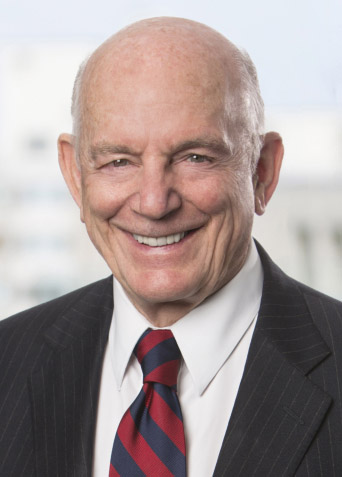Early political career: Johnston won the election from Caddo Parish to the Louisiana House of Representatives in 1964 and to the Louisiana Senate in 1967. In 1971, he ran in a 16-candidate field for governor of Louisiana, losing by a very close margin (0.38 percent) to populist Democrat Edwin Edwards.
The close governor’s race elevated Johnston’s political profile in the state, allowing him to mount a strong campaign in 1972 against 81-year-old longtime incumbent Democrat Sen. Allen Ellender. Ellender died during the primary campaign, and Johnston went on to defeat the Republican candidate and win his first of four consecutive terms in the U.S. Senate.
Senate energy chair: In the U.S. Senate, Johnston developed a reputation for cooperating with both Democrats and Republicans, having a solid grasp of energy issues (chairing the Committee on Energy and Natural Resources from 1973 to 1996), and keeping federal funds flowing to Louisiana. He obtained funding for energy project development, transportation and other infrastructure development, national park and wildlife refuge establishment, and other state projects. He directed hundreds of millions of dollars for science and engineering research to LSU and other universities in Louisiana. He was also a champion of the ultimately canceled Superconducting Super Collider particle accelerator in Texas.
With his longtime chairmanship of the Senate energy committee, Johnston played a major role in crafting U.S. energy policies, particularly those to reduce dependence on foreign oil and mitigate the effects of climate change. Through his efforts, oil drilling was expanded in the Gulf of Mexico, and Louisiana and other coastal states won shares of federal revenue from the drilling. Johnston advocated for the licensing and deployment of more nuclear power plants in the United States, and he helped to rewrite the nuclear licensing provisions of federal law. He worked to pass legislation to develop synthetic fuels and to deregulate oil and natural gas prices.
Final race: Johnston’s last election, in 1990, attracted much attention throughout the country. He was reelected to the Senate for the fourth and final time when he defeated nationally prominent far-right state representative and former Ku Klux Klan grand wizard David Duke. Johnston left the Senate in 1997.
In 2000, Johnston declined the invitation of President-elect George W. Bush to serve as his secretary of energy, preferring to remain a board member and lobbyist for energy development companies and energy investment firms.
Dreams fulfilled: Johnston lived a long and productive life. In his retirement speech on the Senate floor in 1995, he said, “I’m one of those few fortunate human beings who has seen his dreams fulfilled in the fullest and most satisfying sense.”


-3 2x1.jpg)

